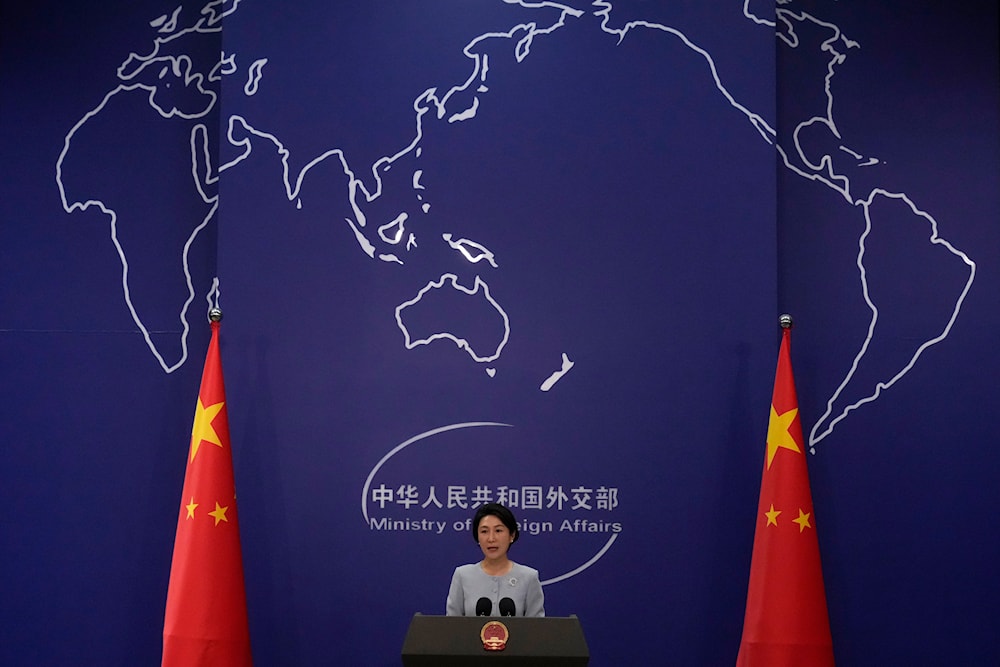China urged Canada to lift its 'discriminatory' tariffs on imports
Canada imposed tariffs targeting Chinese automakers and steel imports from China back in August, which China matched in tariffs targeting agricultural products worth over 2 billion US dollars.
-

Chinese Foreign Ministry spokesperson Mao Ning speaks during a press conference at the Ministry of Foreign Affairs in Beijing, Monday, Aug. 19, 2024 (AP)
China urged Canada to "correct its wrongdoings" and establish a fair trade environment for Chinese electric vehicle companies, following the Canadian Prime Minister's decision to impose tariffs on Chinese imports.
"Canada has insisted on taking discriminatory, restrictive measures on some Chinese imports. This seriously violates WTO rules, disrupts normal trade order, and gravely harms China’s lawful rights and interests," said the Chinese Foreign Ministry Spokesperson Mao Ning.
Ning noted that the "countermeasures China has taken are fully necessary, justified, reasonable and lawful. China urges Canada to take concrete steps to correct the wrongdoings, and provide a fair, non-discriminatory, and predictable environment for the normal trade and cooperation between the businesses of the two countries."
China announced several tariffs on Canada targeting agricultural products, in response to a 100% tariff imposed by Canada in August on Chinese-made electric vehicles, and a 25% tariff on steel and aluminum imports from China in what Canada described as an effort to curb "unfair competition" from Chinese automakers.
China imposes tariffs on Canada
China announced on March 8 tariffs targeting more than 2.6 billion dollars in Canadian agricultural products: a 100% duty on 1 billion dollars in rapeseed oil, oil cakes, and pea imports, alongside a 25% levy on pork and aquatic products worth 1.6 billion dollars.
China's Ministry of Commerce announced that the tariffs would go into effect on March 20, matching Canada’s 100% and 25% duties on Chinese electric vehicles, steel, and aluminum. However, Beijing’s decision to exclude canola—a major Canadian export—suggests a possible willingness to engage in future negotiations.
"Canada's measures seriously violate World Trade Organization rules, constitute a typical act of protectionism and are discriminatory measures that severely harm China's legitimate rights and interests," the Chinese Commerce Ministry stated.
China initiated an anti-dumping investigation into Canadian canola imports in September 2024 with the trade in canola representing more than half of Canada’s total canola exports and reaching a value of $3.7 billion in 2023, according to the Canola Council of Canada.
The developments closely follow increased global trade tensions, sparked by Trump's tariffs targeting Canada, Mexico, and China in what he calls a bid to "combat illegal immigration" and the smuggling of fentanyal, a synthetic opioid drug which has become epidemic in the US.

 3 Min Read
3 Min Read








